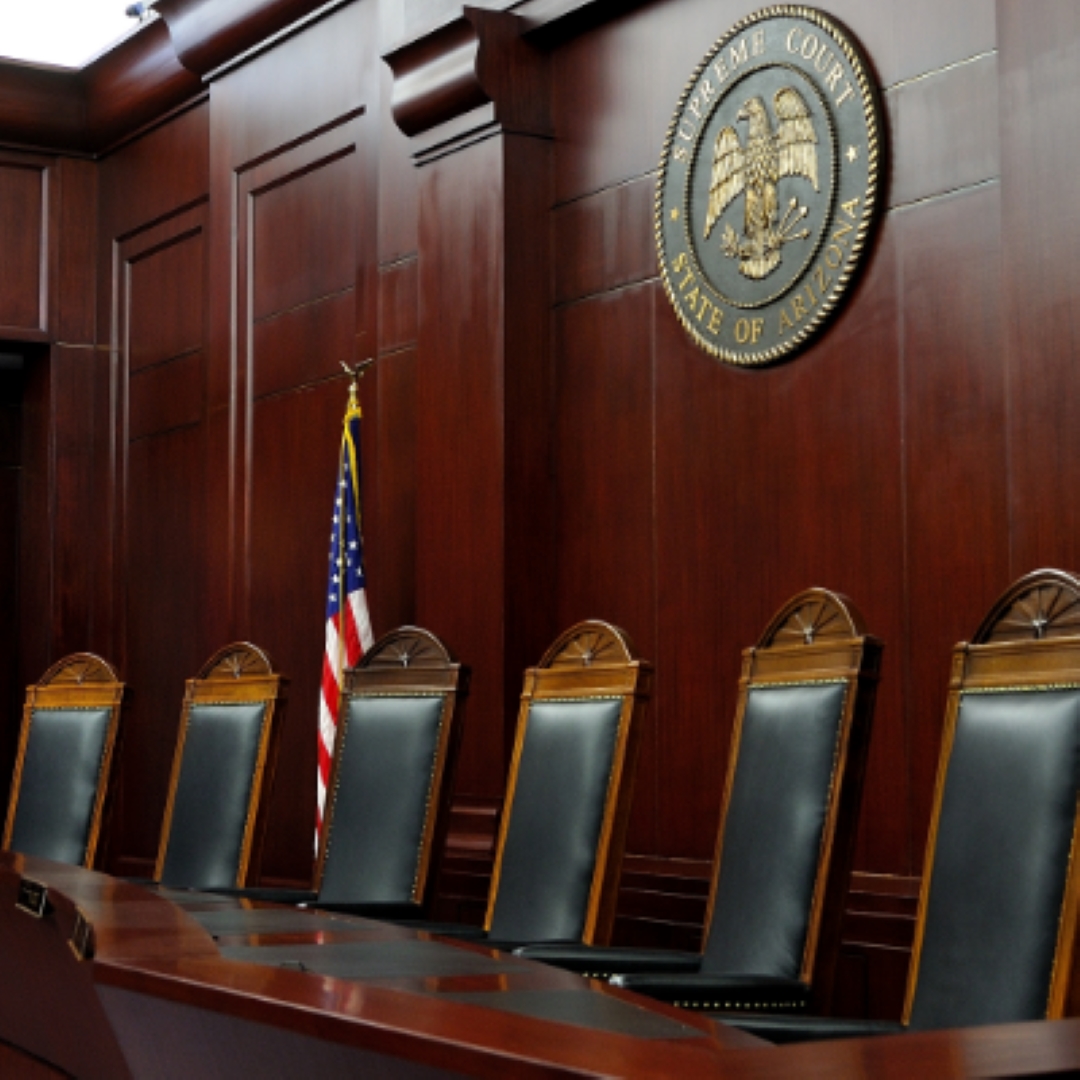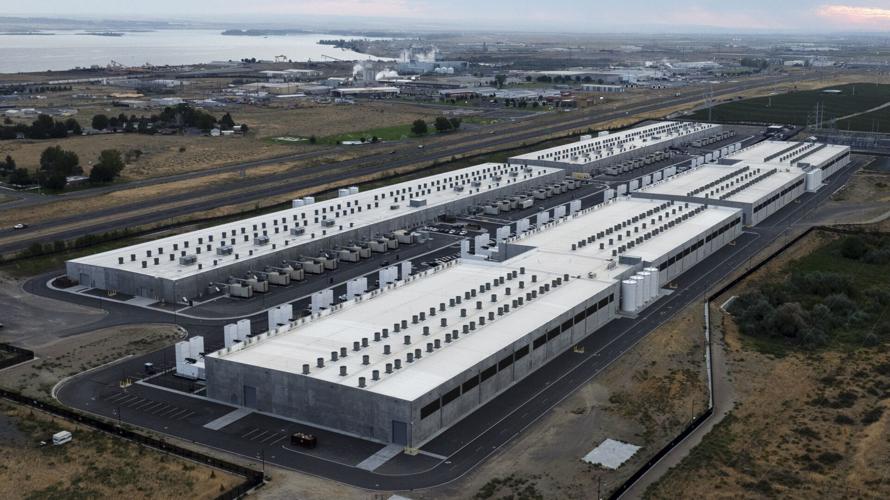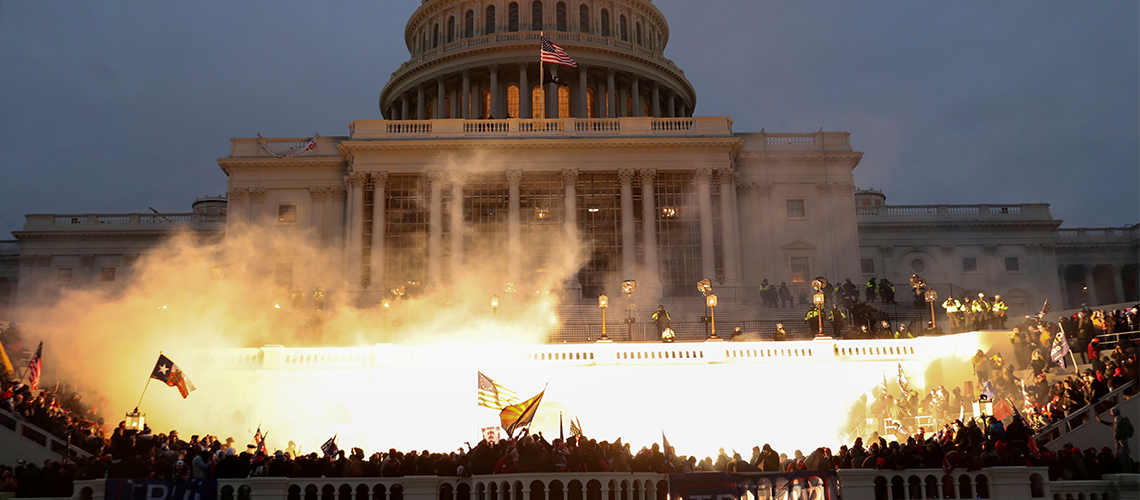
Arizona Proposition 137
Arizona Proposition 137: A Threat to Arizona’s Judicial Retention Elections
In February of 2024, Senate Concurrent Resolution 1044 (SCR 1044) was introduced in the Arizona Senate by Republican sponsors David Gowan and Janae Shamp. SCR 1044, which became Proposition 137 on the 2024 Arizona ballot, is a proposed amendment to the Arizona Constitution to eliminate retention elections for judges. Proposition 137 (Prop 137) will affect access to justice in Arizona by removing the only way Arizonans have a say in who sits as a judge.
In Arizona, we currently have the power to vote on whether we want judges to continue sitting on the bench. The judges who are in large counties, such as Maricopa, Pima, and Pinal County, and sit on the highest courts, including the Arizona Supreme Court and appellate court, are appointed by the Governor. Potential Arizona appellate and Supreme Court judge appointments are selected by the Judicial Nominating Commission and ultimately chosen by the sitting Arizona Governor. Judges appointed to the bench serve for two years, followed by a retention election, which is how they are able to serve the rest of their 6-year term. In this current process, voters have a say in the judicial selection process and can vote to dictate who is qualified to sit on the bench after they have been appointed. Arizona voters flexed that power in 2022, which is why Prop 137 was proposed.
The passing of Prop 137 would completely remove voters from the process. Prop 137 intends to “end term limits for state supreme court justices and superior court judges” in cases of “good behavior,” eliminating retention elections for the Arizona Supreme court, appellate court, and superior courts. “Good behavior” for judges under Prop 137 is defined by:
- Not having a criminal conviction
- No history of bankruptcy or foreclosure of a mortgage
- Meeting judicial performance standards by the Performance Review Commission.
Prop 137 would essentially change the rules of our judicial selection method and create a buffer to protect them from being held accountable by voters. In 2024, most appellate and Supreme Court judges up for retention elections had poor survey responses; however, the Commission on Judicial Performance Review gave high-standing report cards despite judicial complaints and average survey data responses.
Eliminating the judicial retention process would remove Arizona voters’ say in who remains judges for the largest counties and in the highest courts. One important fact about Prop 137 is that it is retroactive, meaning that the 2024 retention elections would not count and the judges serving in 2024 would be judges until they are 70 years old. Therefore, the governor of Arizona, who appoints the judges, would determine the judicial bench for decades with no input from Arizona voters.
Prop 137 limits our access to justice in the courts because it cements the current judicial composition of the biggest and highest courts in Arizona, which are mostly appointments made by former Governor Doug Ducey. The majority of judges who serve on the supreme, appellate, and superior courts have backgrounds in corporate and prosecutorial law. Therefore, Prop 137 would keep these judges on the bench, who have a history of siding with corporations, not the people. It is dangerous for Arizona to change the way judges are held accountable, because the impact will result in keeping an impartial and unfair judiciary, limiting our ability to fight for justice by keeping judges on the bench who have certain ideologies and judicial approaches.
Prop 137 changes the judicial game in Arizona, completely eliminating Arizona voters in the process of judicial selection. Judges decide on cases affecting our civil rights and the issues we care about including (but not limited to):
- Environmental justice
- Indigenous rights
- Immigration
- Criminal justice
- Family rights
- Civil rights
The stakes are high in the courts. Thus, it is important for Arizona voters to have a say in who makes these decisions. Arizonans need to pay attention to Prop 137, because it fundamentally strips the ability for ordinary Arizonans to select judges who make important decisions for ourselves, our community, and our future.


